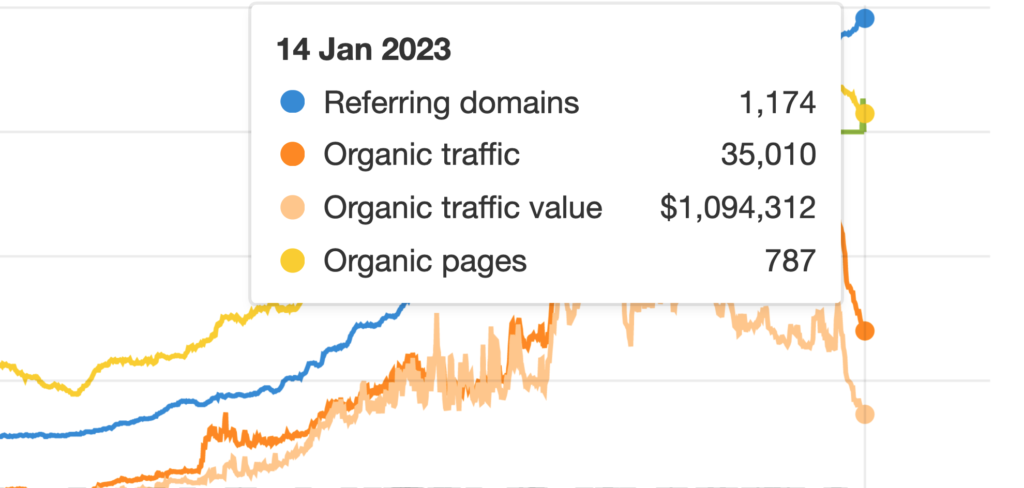Legal Websites and Content Cannibalism Problems 2022

There are several issues that plague digital marketers when it comes to SEO and content writing. Unfortunately, people rarely talk about the penalties Google enforces on all those websites that indiscreetly use keywords in their content. This is commonly referred to as “content cannibalism” or “keyword cannibalism.”
Although some SEO (search engine optimization) specialists don’t think content cannibalization exists, the reality is that it has become a challenge for content marketers and digital marketing experts.
At C.O.L.T, we guide lawyers on the latest SEO practices and how they can improve a blog post or their website’s user experience. Let’s explore what keyword cannibalism is, the problems arising from it, and some of the ways you can fix it.
What Does Keyword Cannibalization Mean in Terms of SEO?
Many are aware of how Google uses keywords to ensure the ranking of websites, but only a few are up-to-date on the latest developments used to discourage the indiscreet use of keywords on a webpage.
Previously, content marketers and SEO specialists would fill the web pages with the blatant use of keywords to ensure that Google recognized the keywords and provided the website with a higher ranking. Even today, you’ll find a lot of websites riddled with unnecessary use of keywords in the hopes of better ranking across search engines. This practice led to SEO and content experts solely focusing on placing the same keyword on multiple pages rather than focusing on providing high-quality content that the audience seeks.
The derogatory strategy of targeting the same keyword across multiple pages to rank higher in search engines is what many people know as “content cannibalism.” To combat such digital marketing practices, Google introduced penalties for websites using the same keyword on multiple pages.
When webpages indulge in keyword cannibalization by targeting the same keyword over multiple pages, they lose a lot of credibility in the eyes of Google.
If you have a law firm blog and several of the website’s webpages are targeting the same legal keyword, it makes it difficult for Google spiders or crawlers to rank those webpages since they’re using the same keyword.
Therefore, instead of getting visibility, Google Spider understands “low quality,” which forces it to consider web pages from other websites instead. Thus, the website focusing on keyword cannibalization loses its reputation and is pushed further back in the rankings. This is why you may come across irrelevant web pages after a couple of search pages on Google.
However, not all website owners or bloggers are aware of the fact that they’re penalized for keyword cannibalization.
Let’s look at another example, but this time of bloggers or webmasters who are unaware of keyword cannibalization.
You run a law firm blog and want to rank for the keyword “car accident in Los Angeles” and write an article with the title “Tips to prevent a car accident in Los Angeles.” A few years later, you realize that there are a couple of more tips that you think would help people prevent car accidents, so you decide to write another article that includes the new tips but targets similar keywords. Even though both the posts are years apart, they are on the same website, targeting similar keywords and therefore leading to keyword cannibalization.
It is surprising to know that only large digital marketing companies with advanced SEO skills can guide you on the Google penalty for keyword cannibalization and how they work. It’s important to note that you can have two pages with similar keywords, but they must have different intents in order for them to “harmoniously” live.
Let’s look at some of the keyword cannibalization issues and how they can affect your website’s ranking.
Determining Keyword Cannibalization Issues
It is often challenging to determine keyword cannibalization for one major reason: a website can rank for other keywords in the content too!
Let’s look at an example to understand what the above statement means.
Consider that we have two web pages that target a similar keyword, but one of them ranks really high while the other one ranks extremely low. Many, after reading the definition of keyword cannibalization, would argue that this is a textbook example of one. However, that may not be the case.
It might be true that both the pages are cannibalizing the same keyword, but they could also be ranking for hundreds of other keywords. In such situations, both pages’ existence at the same time does not affect the website’s organic growth, but if you were to remove or merge those posts or pages, you may see a drop in website traffic.
Some of the most common cannibalization issues include:
- Continuously changing ranking URLs: This is when two URLs of a website continuously fluctuate in ranking because Google can not figure out which page it should rank.
- Fluctuating ranking position: Due to conflicting situations, the ranking position of some of the keywords used may fluctuate.
- Ranking words struggle to increase: For page ranking, links are typically considered a primary factor, and in the event that link authority splits over multiple pages or URLs, it can create a lot of confusion during ranking.
- Wrong URL: There could be a situation where the wrong page or wrong URL is surprisingly considered more relevant by Google due to keyword cannibalization and therefore ranked better than the URL with relevant content. This can negatively affect conversion rates if users end up on the wrong URL.
Finding Cannibalization Issues
As a website owner or SEO expert, you can only fix keyword cannibalization when you are able to determine the underlying issue. The trick behind this is to find pages that target keywords that are similar and that share a similar intent.
Search intent is the reason why you’re conducting search queries. For example, searching for “hire personal injury attorney” in a search engine shows the intent that the user is looking to hire the services of a personal injury lawyer.
Search intent is really important for Google as it provides users with the most relevant results or pages, ranking them accordingly. To top Google search engine rankings, your goal as a user must be to create content that aligns with your search intent.
You will lose more than you gain if you merge or delete a website to eliminate keyword cannibalization without actually determining whether keyword cannibalization occurs on that webpage. However, if the intent is the same, your page may not rank for longer keywords, and in such situations, it would be best to consolidate the pages.
That said, here are a few ways to help you identify keyword cannibalization issues.
Perform a Content Audit
The audit analyzes a website and its content to find opportunities for improvement and is a great way to identify keyword cannibalization if your website is rather small.
Use Google Search Console
Google Search Console, or GSC, is a fantastic tool to help determine cannibalization issues. Simply enter your domain and go to the performance report, where it’ll show you all the queries, in list form, that your website earned impressions for.
Using the “pages tab,” click on any of the queries, and it’ll show you all the webpages that rank for the query and its corresponding stats.
Before you start searching for your domain on GSC, it is important to note that GSC collects all the data and provides an average, so for accurate results, take advantage of the different filters provided. If, after using the filters, you’re still left with more than one URL, it could be a sign of keyword cannibalization.
Study Historic Rankings
Using online site explorer tools, you can find cannibalization issues for a single keyword by entering the website’s domain, heading to the keyword report, filtering the keyword you wish to check out, and checking out its historic rankings.
The organic keyword report generated by these site explorer tools will help you determine whether your keyword is facing a cannibalization issue. It will provide you with information to help you understand whether or not the two web pages share a similar intent. If the intent is the same, you could improve the overall organic performance by consolidating the pages.
Run a Google Site Search
This is fairly simple and requires you to search on Google using the following format: “site:[domain] keyword,” which allows you to see all the pages on your website that have the target keyword.
Let’s look at an example. We opened a Google search and ran a search for “site:ehlinelaw.com “personal injury attorneys,” and you’ll come across all the pages that rank for the keyword “personal injury attorneys”. However, this method can be unreliable as Google will return the search with vaguely similar results, and in this case, it suggested 1,590 pages for our search.
On the surface, it may seem that there is a keyword cannibalization issue with the website considering many pages showed up, but these pages are not problematic as the search intent of the pages is completely different, and most of these pages are targeting other different keywords too.
You would need to do a manual analysis of the websites by identifying whether they share the same intent. If you find multiple pages with similar intent, you could roll out solutions to ensure that only a single page targets a specific intent.
How to Fix Keyword Cannibalization Issues
There is no single solution to fixing keyword cannibalization issues, but there are some common fixes that you can try to help get rid of them.
Remove and Redirect
When you identify the websites that share the same keyword and have similar intent, you must only keep one of the pages alive and redirect the remaining pages.
Before you start removing the pages, use online tools to help you determine which page is the strongest. After you’ve identified the strongest page, start removing the other pages and do a permanent redirect to the strong page.
Remember, you may have other pages that have internal links to the removed pages, so make sure to update those too. In a couple of weeks, you’ll see the removed pages dropped from Google’s index.
Canonicalization
At times, you may face situations where you can’t remove all the pages and leave just one strong page. In such events, you can take advantage of canonical links.
Canonical links are links that help users prevent duplicate content issues by providing the best representative page from all the other duplicate pages. By having a canonical link, you’re letting Google know which page you prefer to rank on the SERP. It also attributes all the ranking signals to that page.
Canonical links are a great way, if you’re not willing to delete all the webpages with similar keywords and intent, to allow your users to access these webpages whenever they want while maintaining ranking for your primary or main page.
An example being, “personal injury lawyer” can be the landing page that links to all other pages, such as car accident attorneys, dog bite attorneys, cruise ship lawyers, and so on.
Reoptimizing Pages
By not optimizing for keyword variations, you may have caused keyword cannibalization.
Take an example of a legal service such as “car accident attorneys” offered by a legal firm across three different locations. Even though the specific keyword “car accident attorney” is the same, you can have product variations with unique URLs and the same titles by optimizing each product page accordingly to prevent keyword cannibalization.
A good example is, you could have three pages for “car accident attorney,” but each page would be optimized for a particular location, such as a car accident attorney in San Diego, a car accident attorney in Los Angeles, and a car accident attorney in Santa Ana.
Reworking Internal Linking Structure
You can also prevent keyword cannibalization by reworking the internal linking structure so that the links are set up in such a way that they do not redirect to the cannibalized page. However, you would need to combine this strategy with others for it to be effective.
Merging Pages
When you have weaker competing cannibalized pages, it is best to combine them into one single page. Owing to this, you may also need to freshen up the content and also redirect deleted pages to pass over ranking signals.
Create a New Page Focusing on the Intent
Cannibalization issues can also occur when a page ranks for search terms for something related to it but not an exact match. This is because the intent for your page does not exist, and to rectify that, you must create a new page that focuses on the intent.
Become a Contributor at C.O.L.T
At C.O.L.T, we encourage specialists to become part of publications where we guide and help lawyers with the best SEO practices. Through our content, we hope to teach lawyers to do their own marketing. If you’re interested in contributing or want to know more about C.O.L.T, contact us at +(888) 494-5015 or send us an email at info@circleoflegaltrust.com.



